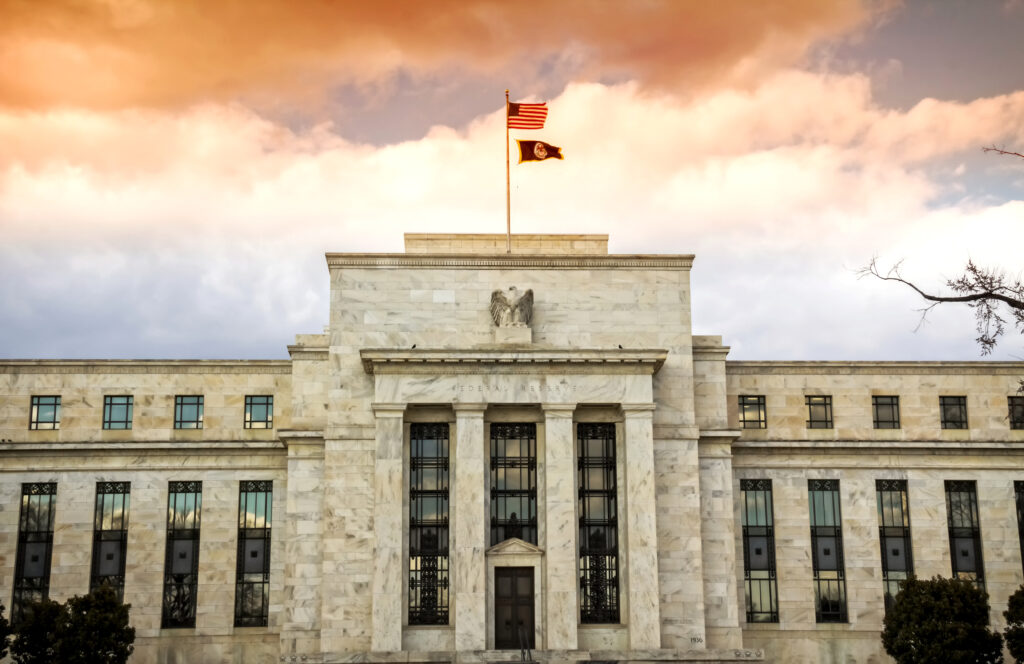Darius recently sat down with Exploring Prosperity’s Robert Dewey, where they discussed the new wave of populism, the impacts of the U.S. regional banking crisis, the U.S. dollar, and more.
If you missed the interview, here are the three most important takeaways from the conversation that have significant implications for your portfolio:
1. Is There A Material Difference Between Either Presidential Candidate From A Fiscal Policy Perspective?
Regardless of which candidate wins the upcoming election, we believe we are likely to see even more populism, or the promotion of policies that reflect the concerns of the people, regardless of the economic or institutional impact those policies have.
No matter what form this new wave of populism takes, it is likely to drive US public sector debt growth that forces the Fed to remain asymmetrically dovish.
Our view is that we are all frogs being slowly boiled alive in a pot of monetary debasement and financial repression, driven by Fourth Turning-style fiscal dominance. We have called for continued financial repression, which we have already experienced—and in our view, it is likely to accelerate throughout this Fourth Turning.
2. How Has The Focus of Policymakers Shifted Since The U.S. Regional Banking Crisis?
During the U.S. regional banking crisis in March 2023, the forward rate curve inverted and has remained persistently negative ever since.
This deepening inversion signaled to investors that financial stability concerns had taken precedence—reflecting Fourth Turning-style financial repression, in which stabilizing sovereign debt markets is the central focus for policymakers.
The persistent inversion has profoundly impacted the Fed’s balance sheet and overall U.S. liquidity. As the Fed responded with dovish measures during the crisis, trillions of dollars flowed out of the reverse repo (RRP) facility and into financial markets. In our view, this liquidity flow remains ongoing and is likely to extend into Q1 2025.
3. How Will Global Reliance on The US Dollar Change Over The Next Decade?
Our research indicates the U.S. dollar currently plays a dominant role in the global financial system:
- 50% of currencies with pegs are anchored to the dollar (by GDP).
- 60% of global FX reserves are held in dollars.
- 60% of cross-border bank lending is conducted in dollars.
- 70% of international debt securities are dollar-denominated.
- 79% of global trade is invoiced in dollars.
- 88% of foreign exchange transactions involve the dollar.
- 99% of stablecoin reserves are backed by the dollar.
In our view, these numbers will decline over the long term as countries reduce their reliance on the dollar. We believe the continuation of aggressive populist fiscal policies in the U.S. poses significant risks for investors, with the most important risk being how the Federal Reserve responds to the global shift away from the dollar, as this transition will have profound implications for financial markets. We think the Fed will print money to monetize US deficits, filling the increasing void left behind by international investors and central banks.
By now, you’ve likely realized that piecing together an investment strategy from finance podcasts, YouTube videos, and macro “gurus” on 𝕏 is not delivering the results you know you deserve.
This kind of approach only leads to confusion from conflicting advice, frustration from mediocre returns, and exhaustion from the emotional rollercoaster of your portfolio swings.
If you don’t change your process, how can you expect to get better results?
Over 2,000 investors around the world confidently make smarter investment decisions using our clear, actionable, and accurate signals—and as a result, they make more money.
If you are ready to learn more about how our clients incorporate macro into their investment process and how you can do the same, we invite you to watch our complimentary 3-part macro masterclass.
No catch, just macro insights to help you grow your portfolio—our way of saying thanks for being part of the 42 Macro universe.


